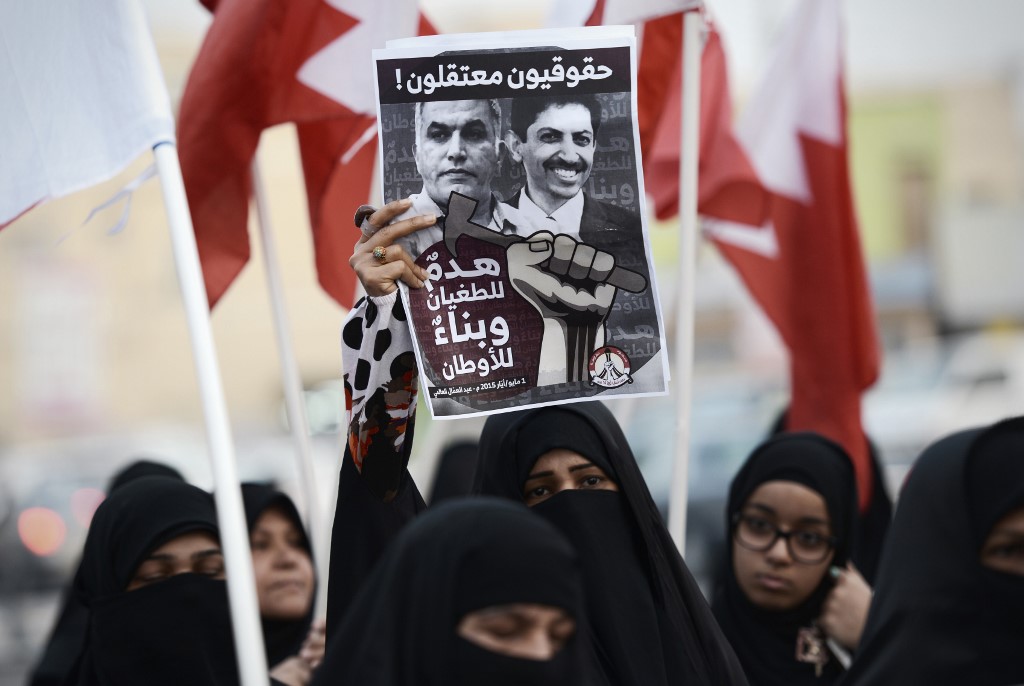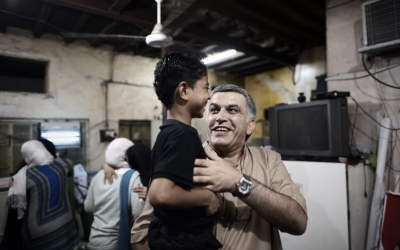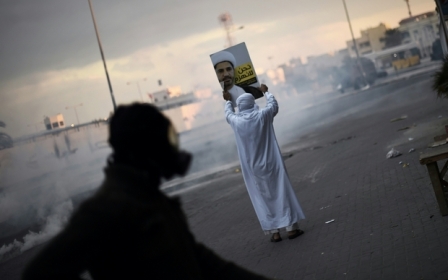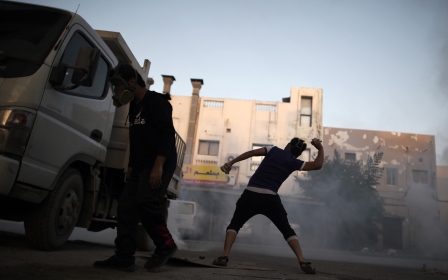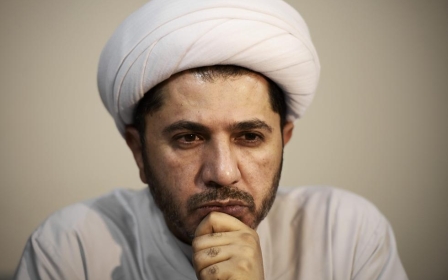Nabeel Rajab: A true patriot's journey
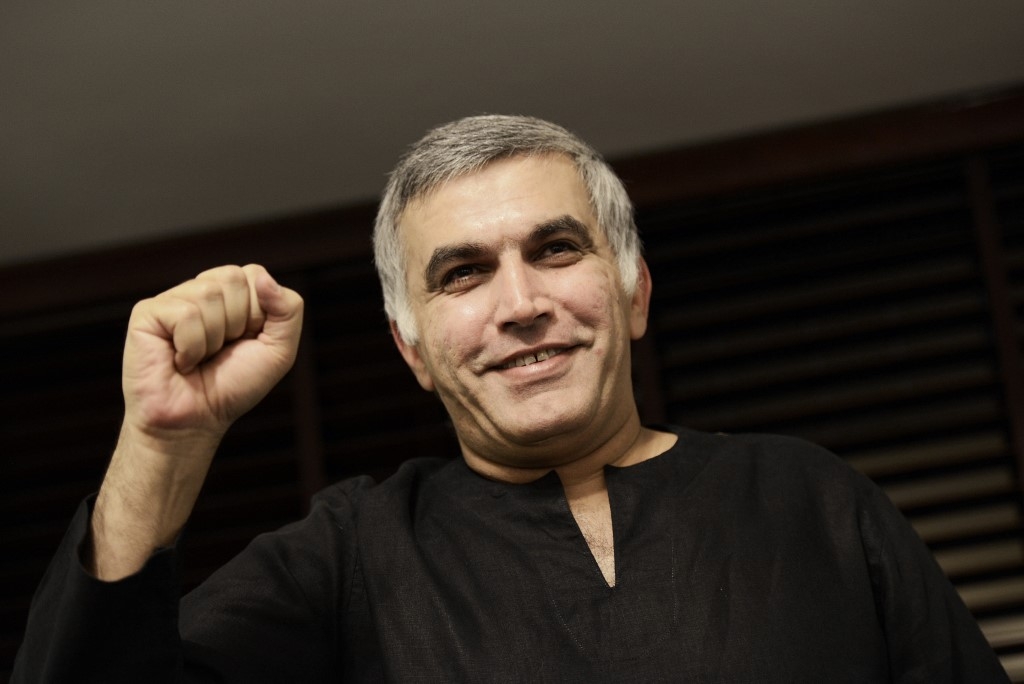
In the long journey that Nabeel Rajab has taken, and the many courageous stands he has made in the fight for human rights in Bahrain, he has always stood firm in his belief that the struggle’s greatest weapon - and the one most feared by the autocrats of the ruling Al Khalifa family - is peaceful protest.
That belief led him to establish, together with Abdulhadi Alkhawaja and others, the Bahrain Centre for Human Rights in 2002. It led him to challenge the discrimination against the majority Shia Muslim population at the hands of the Sunni ruling family.
It took him into the streets of the capital Manama in 2011 to join tens of thousands of peaceful protesters calling for reform. It took him to jail, where he was held at the infamous Jau Prison, much of the time in solitary confinement.
Tissue-thin charges
The charges against him were tissue thin, the court proceedings farcical, the sentences - delivered by a politicised judiciary controlled by the Al Khalifas - wildly disproportionate: three years, reduced to two on appeal, in 2012 for “illegal gathering”; two years in 2017 for “disseminating false news”; five years in 2018 for “offending national institutions” and “spreading rumours during wartime”, in regards to comments he made about civilian deaths and Bahrain’s involvement in the Yemen war.
New MEE newsletter: Jerusalem Dispatch
Sign up to get the latest insights and analysis on Israel-Palestine, alongside Turkey Unpacked and other MEE newsletters
On 9 June, under the Bahraini government’s alternative sentencing programme, he was released to serve out the remaining three years of his sentence at his home in Bani Jamra.
Rajab wanted us to know of the high unemployment rate of young Bahrainis, of their anger and frustration at the discrimination they were experiencing at the hands of the royal family
I first met Rajab in 2007 when I was making a programme for BBC Radio 4. He took us to Malkiya, a fishing village outside the capital, Manama. The villagers were protesting that a member of the Al Khalifa family had summarily taken waterfront land from them to build a seaside villa.
Rajab wanted us to know of the high unemployment rate of young Bahrainis, of their anger and frustration at the discrimination they were experiencing at the hands of the royal family.
He wanted us to know of the poor housing in Shia communities and of the unequal distribution of wealth. But he also wanted us to understand that Bahrainis from across sectarian and economic divides shared a desire for gradual reform - and for that reform to come, it must be through peaceful means and dialogue.
Tireless campaigner
In my trips back to Bahrain, when I was still allowed into the country, I made a point of meeting up with Rajab. In a climate where government officials often refuse to speak to members of the foreign press, he always made himself available. It was more than just his natural politeness; it was a useful strategy, given the obfuscation and obtuseness of the regime.
In our many meetings and conversations, both in Bahrain and outside (before being banned from leaving the country, he was tireless in campaigning in Europe and the UK), he always stressed the importance of non-violent protest.
A proud Bahraini, he was quick to tell me that in 1970, prior to independence from Britain, the vast majority of citizens voting in a referendum rejected the idea that their country should be incorporated into Iran. It was an emphatic refutation of the regime’s oft-repeated charge against human rights and democracy activists that they were protesting at the behest of the Iranian regime.
Something of an Anglophile - on one occasion, he delighted in taking me to the British Club in Manama - he feels deeply that the cause upon which he embarked, and for which he and his family have sacrificed so much, is deeply rooted in British values of free speech, free media and open democracy.
His release under the alternative sentencing programme is a step in the right direction. But he will be constrained by the terms of the programme and will not be able to comment either on his incarceration or the many human rights issues to which he has dedicated his life, and that have had such a huge impact on him, his wife and his two children.
Travesties of justice
And what of the others still in jail? Among them is Abdulhadi Alkhawaja, sentenced together with eight other activists to life imprisonment in 2011 in a military court on utterly specious charges of attempting to overthrow the government.
When he was arrested in April of that year, he was brutally beaten and subsequently denied medical treatment for his injuries. Both of his adult daughters, now outside the country, were at various times detained and Zainab, the eldest, spent much of 2013 in prison. In 2016, she was held for three months, together with her one-year-old son, in Isa Town Women’s Prison.
Sheikh Ali Salman, the leader of the now-banned opposition Al Wefaq political society, was sentenced to life imprisonment on concocted charges that he spied for Qatar in an effort to overthrow the Al Khalifa regime. Already serving a four-year prison term, he was convicted of the sedition charge soon after Bahrain, Saudi Arabia, the United Arab Emirates and Egypt launched a land, air and sea blockade of Qatar in 2017.
His conviction was thrown out on appeal and then subsequently reinstated in November 2018, a decision that Amnesty International called “a travesty of justice that demonstrates the Bahraini authorities’ relentless and unlawful efforts to silence any form of dissent”.
There are many more such travesties inflicted on innocent people in Bahrain by a policing and judicial system that the British government has spent millions of pounds backing with the facile claim that it is supporting an ongoing process of reform. In reality, there is no reform. What Britain has done is provide cover for an abusive regime that openly and consistently flouts its contempt for the rule of law.
The world shouts back
In an earlier piece about the imprisoned UAE human rights defender Ahmed Mansoor, I argued that the true meaning of patriotism was embodied in the battle for human rights and the dignity of the individual.
We salute the patriots and we will not tolerate the silence
Mansoor, together with Rajab, Alkhawaja, Salman, Loujain al-Hathloul, Raif Badawi and every other prisoner of conscience, are all patriots - people who love their country and, if necessary, will fight for it. Right now, the true patriots’ battle is resonating globally in the wake of the US police killing of George Floyd and in the dumping of the statue of a slave trader into Bristol Harbour.
In a world turned upside-down, we must seize the moment to challenge those who, by passive consent or active aggression, seek to silence true patriots. The world is shouting back: We salute the patriots and we will not tolerate the silence.
The views expressed in this article belong to the author and do not necessarily reflect the editorial policy of Middle East Eye.
Middle East Eye delivers independent and unrivalled coverage and analysis of the Middle East, North Africa and beyond. To learn more about republishing this content and the associated fees, please fill out this form. More about MEE can be found here.



